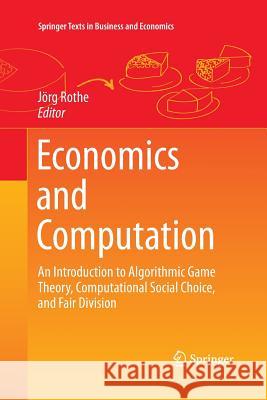Economics and Computation: An Introduction to Algorithmic Game Theory, Computational Social Choice, and Fair Division » książka
topmenu
Economics and Computation: An Introduction to Algorithmic Game Theory, Computational Social Choice, and Fair Division
ISBN-13: 9783662510445 / Angielski / Miękka / 2016 / 612 str.
Economics and Computation: An Introduction to Algorithmic Game Theory, Computational Social Choice, and Fair Division
ISBN-13: 9783662510445 / Angielski / Miękka / 2016 / 612 str.
cena 342,14
(netto: 325,85 VAT: 5%)
Najniższa cena z 30 dni: 327,68
(netto: 325,85 VAT: 5%)
Najniższa cena z 30 dni: 327,68
Termin realizacji zamówienia:
ok. 16-18 dni roboczych.
ok. 16-18 dni roboczych.
Darmowa dostawa!
Kategorie:
Kategorie BISAC:
Wydawca:
Springer
Seria wydawnicza:
Język:
Angielski
ISBN-13:
9783662510445
Rok wydania:
2016
Wydanie:
Softcover Repri
Ilość stron:
612
Waga:
0.86 kg
Wymiary:
23.39 x 15.6 x 3.23
Oprawa:
Miękka
Wolumenów:
01
Dodatkowe informacje:
Wydanie ilustrowane











